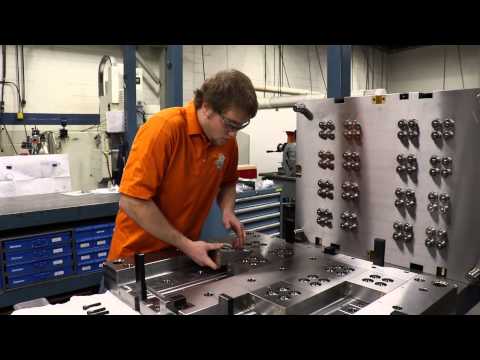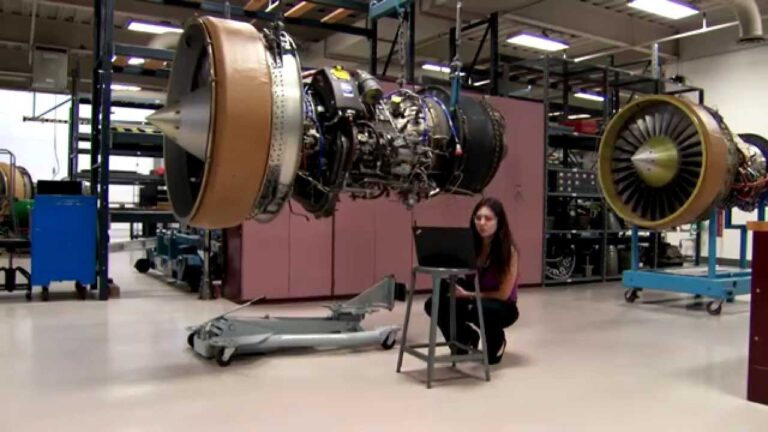Moldmaker Job: Duties and Salary

Moldmaker Job Description Template
Moldmaker Job Description A moldmaker, also known as a mold technician, is responsible for creating and maintaining molds used in various manufacturing processes. This role requires a combination of technical skills, such as reading blueprints and using computer-aided design (CAD) software, as well as manual dexterity to operate machinery and tools. One of the key responsibilities of a moldmaker is to construct molds based on specifications provided by engineers or designers. They carefully study the blueprints and use their expertise to select appropriate materials and determine the best methods for creating the mold. They may utilize various techniques such as cutting, shaping, and assembling different components to build the mold. Once the mold is created, the moldmaker is responsible for testing and inspecting it to ensure its functionality and accuracy. They may make necessary adjustments or repairs to ensure that the mold meets the required standards. Additionally, they may be involved in troubleshooting any issues that arise during the manufacturing process and provide recommendations for improvements. Another important aspect of the moldmaker’s job is the maintenance and repair of existing molds. They regularly inspect molds for any damage or wear and tear, and perform repairs or replacements as needed. This requires knowledge of various tools and techniques, as well as an understanding of the materials used in mold construction. In summary, a moldmaker plays a crucial role in the manufacturing industry by creating, maintaining, and repairing molds. Their technical skills, attention to detail, and problem-solving abilities are essential for ensuring efficient and accurate production processes. Technical skills and attention to detail are two important qualities that moldmakers possess to successfully carry out their responsibilities.Moldmaker Responsibilities
Moldmaker Requirements
How Much Does A Moldmaker Make?
Moldmaker Salary
| Experience Level | Average Annual Salary |
|---|---|
| Entry Level | $35,000 – $45,000 |
| Mid-Level | $45,000 – $60,000 |
| Experienced | $60,000 – $80,000 |
| Senior Level | $80,000 – $100,000 |
A Moldmaker’s salary can vary based on their experience level. Entry Level Moldmakers can expect to earn an average annual salary ranging from $35,000 to $45,000. Those at the Mid-Level can earn between $45,000 and $60,000. Moldmakers with more experience fall into the Experienced category and can earn salaries ranging from $60,000 to $80,000. Senior Level Moldmakers, with extensive experience, can earn between $80,000 and $100,000 annually.
Moldmaker Salaries by Country
Top Paying Countries for Moldmaker
| Country | Average Salary (USD) |
|---|---|
| Switzerland | 80,000 |
| United States | 70,000 |
| Germany | 65,000 |
| Canada | 60,000 |
| Australia | 55,000 |
Moldmakers in Switzerland earn the highest average salary of $80,000 per year, making it the top paying country for this profession. The United States follows closely behind with an average salary of $70,000. Germany, Canada, and Australia also offer competitive salaries for moldmakers, with average earnings ranging from $55,000 to $65,000. These countries provide attractive opportunities for moldmakers seeking high-paying positions and career growth in the industry.
A video on the topic Moldmaker
Video Source : Modern Machine ShopInterview Questions for Moldmaker
1. What is the role of a Moldmaker?
A Moldmaker is responsible for creating molds or patterns that are used in the manufacturing of various products. They work with different materials to shape and form molds according to design specifications.
2. What skills are required to be a successful Moldmaker?
Successful Moldmakers should have excellent technical and mechanical skills, as well as proficiency in reading blueprints and understanding design requirements. They should also have good problem-solving abilities and attention to detail.
3. What materials are commonly used in moldmaking?
Commonly used materials in moldmaking include metals such as steel and aluminum, as well as various types of plastics and resins.
4. What are some common tools and equipment used by Moldmakers?
Some common tools and equipment used by Moldmakers include lathes, milling machines, CNC machines, grinders, and various hand tools such as files and drills.
5. How important is precision in moldmaking?
Precision is extremely important in moldmaking, as even the slightest deviation can affect the quality and functionality of the final product. Moldmakers must ensure accurate measurements and precise machining to achieve the desired results.
6. What are some challenges faced by Moldmakers?
Some challenges faced by Moldmakers include dealing with complex designs, working with tight tolerances, and troubleshooting any issues that arise during the moldmaking process. They may also need to adapt to changes in design specifications or materials.
7. How do Moldmakers ensure the molds are of high quality?
Moldmakers ensure high-quality molds by carefully following design specifications, conducting thorough inspections and measurements, and using precise machining techniques. They also perform testing and adjustments as necessary to ensure the molds meet the required standards.
8. How does moldmaking contribute to the manufacturing industry?
Moldmaking plays a crucial role in the manufacturing industry as it enables the mass production of products with consistent quality. By creating molds that are used in various manufacturing processes, Moldmakers help streamline production and reduce costs.
9. What are some safety precautions Moldmakers should follow?
Moldmakers should follow safety precautions such as wearing appropriate protective gear, using tools and equipment properly, and maintaining a clean and organized work environment. They should also be aware of potential hazards and follow established safety protocols.
10. What opportunities for career advancement are available for Moldmakers?
Moldmakers can advance their careers by gaining experience and expertise in specialized moldmaking techniques or materials. They may also pursue leadership roles such as supervisory positions or move into related fields such as tool and die making or product design.






